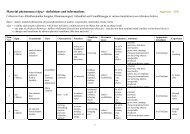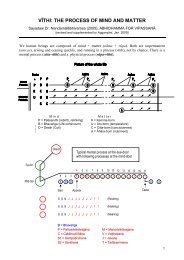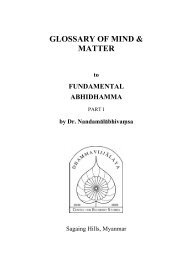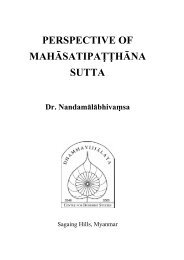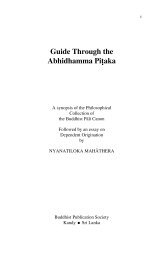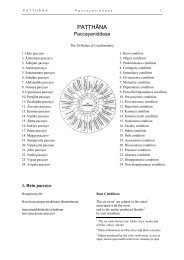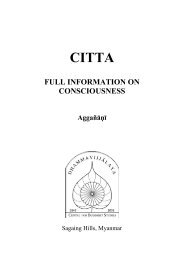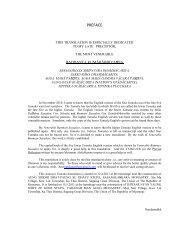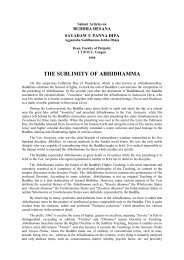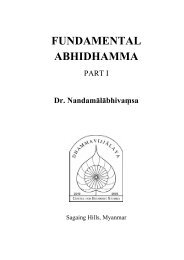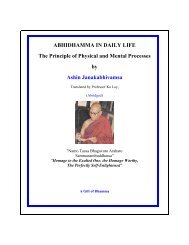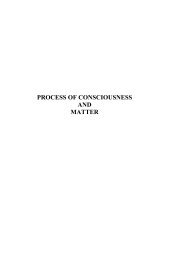Mahathera Ledi Sayadaw - Abhidhamma.com
Mahathera Ledi Sayadaw - Abhidhamma.com
Mahathera Ledi Sayadaw - Abhidhamma.com
You also want an ePaper? Increase the reach of your titles
YUMPU automatically turns print PDFs into web optimized ePapers that Google loves.
Santatiannathabhava, that is, of the radical change and of the sequent change of the continua,<br />
things which are visibly evident to, and personally experienced, by, every man alive.<br />
The exercises in Insight that ought to he taken up are first, the Four Great Elements from among<br />
the material qualities, and the six classes of cognition from among the mental qualities. If one can<br />
discern the arisings, and ceasings of the Four Elements innumerable times in one day alone, the<br />
changes, or the risings and ceasings of the rest (i.e., upadarupas: the derivative material qualities)<br />
are also discerned. Of the mental qualities also, if the changes of consciousness are discerned,<br />
those of the mental con<strong>com</strong>itants are simultaneously discerned. In particular, feelings,<br />
perceptions, volitions, and so forth, from among the mental qualities, and forms, odours, and so<br />
forth from, among the material qualities, which are extraordinary may be taken as objects for the<br />
exercise, as they will quickly enable a meditator to acquire with ease the Insight of<br />
Impermanence.<br />
However, from the philosphical point of view, the Insight is acquired in order to dispel such<br />
notions as "creatures," "persons," "soul," "life," "permanence," "pleasures," and to get rid of<br />
hallucinations. The acquisition of Insight also mainly depends on a sound grasp of the Triple<br />
Marks, which have been sufficiently dealt with already.<br />
So much for the exposition of Tiranaparinna.<br />
PAHANA-PARINNA<br />
In Buddhist philosophy there are five kinds of Pahana which it is necessary to deal with:<br />
146. Tadangapahana,<br />
147. Vikkhamabhanapahana,<br />
148. Samucchedapahana,<br />
149. Patipassadhipahana,<br />
150. Nissaranapahana.<br />
In order to make them clear, the three periods of the Defilements which are called Bhumi must<br />
here be mentioned.<br />
They are :-<br />
151. Anusayabhumi,<br />
152. Pariyutthanabhumi,<br />
153. Vittikkamabhumi.<br />
Of these three, Anusayabhumi means the period during which the Defilements do not <strong>com</strong>e into<br />
existence as mental properties representing themselves in the three phases of time, i. e., nascent,<br />
static, and arrested, but lie latent surrounding the life-continuum.<br />
Pariyutthanabhumi means the period at which the Defilements <strong>com</strong>e into existence from the<br />
latent state as mental properties at the mind-door when any object which has power to wake them<br />
up produces perturbance at one of the six doors.<br />
Vitikkamabhumi means the period at which the Defilements be<strong>com</strong>e so fierce and ungovernable<br />
that they produce sinful actions in deed and word, Thus, in the revolution of existences that have<br />
no known beginning, every Greed that follows a creature's life contiuum has three bhumis.<br />
Similarly, the rest of the Defilements, error, dullness, conceit, and so forth, have three periods<br />
each.



